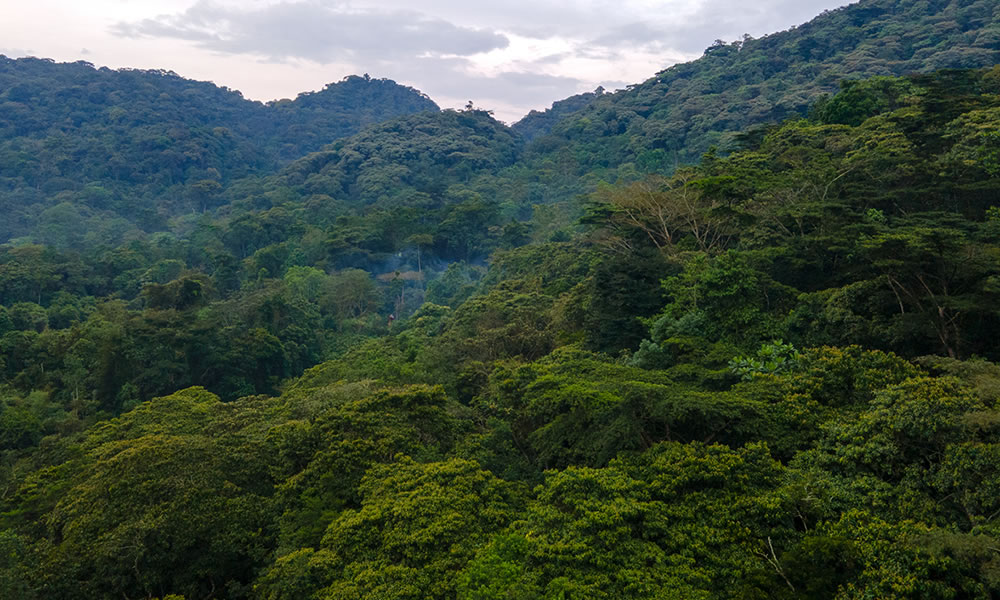Rwanda is a stunning country with a variety of ecosystems. One region rich in primates is Gishwati Mukura, which was developed as the nation’s newest conservation area. It combines the Gishwati Forest, which is an extension of the Nyungwe Forest National Park, with the Mukura Forest. The forest is tucked along the border that connects the Congo and Nile water catchment area. It is Rwanda’s fourth park, covering a total area of 34 square kilometres, including a safe buffer zone for animals. The incredibly biodiverse environment is a hot spot for wildlife, including endemic species.

The national park offers a vibrant overview of the biodiverse ecosystem made up of a variety of vegetative cover, including bamboo forests, swamp vegetation, and grassy lands. The park’s tree species are highly numerous and ecologically significant; giant tree ferns and Carapa grand folia, the most common tree species there, are two examples. The canopy of trees serves as a home to many animals that enjoy jumping and hanging from trees, including chimpanzees, which are thought to share over 98% of human DNA.
The African civet, many forest amphibian species like lizards and frogs, and the Side Striped Jackal, a nocturnal species that resembles domestic dogs and is omnivorous in nature, are among the other park animals. The mountain monkey, also known as the L’hoest monkey, is one of the most striking features in the park with its golden brown eyes and puffy white cheeks. They enjoy feeding on fruits and leaves of the forest.
Many African tropical forest birds can be found in Gishwati Mukura National Park. Of the 160 species of birds known to exist in the park, 14 are endemic. Some of these birds are the Rwenzori turaco, great blue turaco, dusky crimson wing, handsome francolin, Martial eagle, grey-crowned crested crane, Rwenzori double collared sunbird, and strange weaver. The national park’s main attractions provide plenty of opportunity to engage in activities like guided nature walks and chimpanzee tracking, albeit these may not provide the same experience as visiting Nyungwe due to the chimps’ lower habituated levels. Gishwati Mukura National Park is a well-known birdwatching destination with a wide variety of indigenous species.
The park is best visited during the extended dry season, which runs from June to September. It is situated in the northeastern region of Rwanda and is accessible from Kigali International Airport. Because of the forest’s tropical rain climate, visitors should always pack warm clothing and rain gear because it is likely to rain at any time. Reservations for lodging are required for visits to the national park. The Forest of Hope Guest House serves as one such establishment. There may not be as many options for somewhere to stay because this area has not been adequately organised for lodging.
